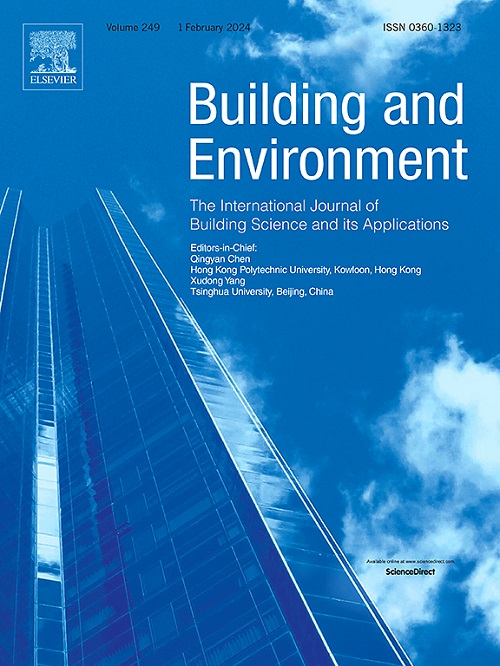Sensor fault diagnosis and calibration techniques in building energy systems: A review and future outlook
IF 7.1
1区 工程技术
Q1 CONSTRUCTION & BUILDING TECHNOLOGY
引用次数: 0
Abstract
While extensive research has been conducted on fault detection and diagnosis (FDD) and sensor calibration in building energy systems, a comprehensive overview of the technical developments in these areas, particularly in response to emerging needs such as high-precision measurement and the advent of new technologies like big data and artificial intelligence, remains limited. To bridge this gap, this paper presents a systematic review of sensor-related topics in building energy systems. It logically summarizes existing research, draws conclusions on current developments, and predicts future trends in sensor technology. The paper categorizes the impacts of sensor failures on energy systems into three primary areas: energy efficiency, thermal fault diagnosis, and indoor thermal comfort. It then outlines the evolution of FDD methods by introducing various models. Finally, recent studies and applications of “true value”/benchmark value determination methods, calibration algorithms, and measurement performance evaluation are presented, along with a summary of the main challenges in sensor calibration and evaluation for ensuring efficient building energy system operation in the context of these emerging trends.
建筑能源系统传感器故障诊断与校准技术综述与展望
虽然对建筑能源系统中的故障检测和诊断(FDD)和传感器校准进行了广泛的研究,但对这些领域的技术发展的全面概述,特别是对高精度测量等新兴需求的响应,以及大数据和人工智能等新技术的出现,仍然有限。为了弥补这一差距,本文对建筑能源系统中与传感器相关的主题进行了系统的回顾。它从逻辑上总结了现有的研究,得出了当前发展的结论,并预测了传感器技术的未来趋势。本文将传感器故障对能源系统的影响分为三个主要领域:能源效率、热故障诊断和室内热舒适。然后通过介绍各种模型概述了FDD方法的发展。最后,介绍了“真值”/基准值确定方法、校准算法和测量性能评估的最新研究和应用,并总结了在这些新兴趋势的背景下,为确保建筑能源系统的高效运行,传感器校准和评估面临的主要挑战。
本文章由计算机程序翻译,如有差异,请以英文原文为准。
求助全文
约1分钟内获得全文
求助全文
来源期刊

Building and Environment
工程技术-工程:环境
CiteScore
12.50
自引率
23.00%
发文量
1130
审稿时长
27 days
期刊介绍:
Building and Environment, an international journal, is dedicated to publishing original research papers, comprehensive review articles, editorials, and short communications in the fields of building science, urban physics, and human interaction with the indoor and outdoor built environment. The journal emphasizes innovative technologies and knowledge verified through measurement and analysis. It covers environmental performance across various spatial scales, from cities and communities to buildings and systems, fostering collaborative, multi-disciplinary research with broader significance.
 求助内容:
求助内容: 应助结果提醒方式:
应助结果提醒方式:


